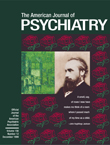The Contribution of Hughlings Jackson to an Understanding of Dissociation
Abstract
The author provides a preliminary framework for a systematic and dynamic understanding of dissociation through a consideration of the theories of Hughlings Jackson. Jackson’s ideas are briefly reviewed. He saw the proper scientific investigation of mental illness as an experimental investigation of mind. Accordingly, his argument begins with this fundamental concept. His views of the brain-mind relationship and of mind, or self, resemble modern conceptions. He viewed the self as double and focused on those disruptions of the self system which he called the “dreamy state.” This state involves an “uncoupling” of normal consciousness, resulting in the loss of the most recently developed forms of memory and of the stream of consciousness. Dissociation is seen here as analogous to the dreamy state. Jacksonian theory predicts the main features of dissociation, i.e., constriction of consciousness, a particular form of amnesia, disaggregation of perceptual phenomena, depersonalization, derealization, and hallucinosis. It leads to the view that dissociation can be seen, in essence, as an uncoupling of consciousness



